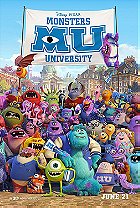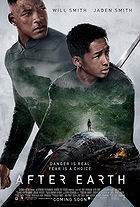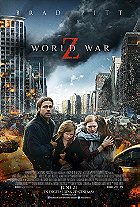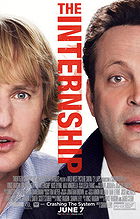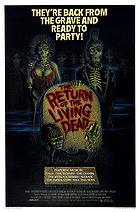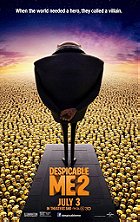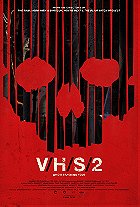For those unaware of the behind-the-scenes turmoil that occurred during the production of Superman II, here is a brief recap. Director Richard Donner shot Superman I and II simultaneously over nineteen months, but filming on the second flick was halted to allow the director to concentrate on completing the first film. Producers Ilya and Alexander Salkind did not want to pay Donner the money they owed him, and they fired him before bringing in the more comedically-minded Richard Lester to take the reins. Donner's vision was lost, with Lester turning 1980's Superman II into a campy farce. Donner shot up to 80% of his Superman II, leading to a long-running campaign demanding the release of Donner's missing footage. Warner Bros. finally bit the bullet in the mid-2000s, creating essentially a whole new film to coincide with 2006's Superman Returns, and we now have Superman II: The Richard Donner Cut. Although the continuity is shaky and this version falls short of perfection, The Donner Cut is more in line with the feel and tone of the first film, showing a devotion to character and logic that Lester's film sorely lacks.

Following on from Superman, the story finds Kryptonian rebels General Zod (Terence Stamp), Ursa (Sara Douglas) and Non (Jack O'Halloran) breaking free of their Phantom Zone prison in space. Landing on Earth, the trio look to conquer the planet, briskly defeating the world's armies and overthrowing the President of the United States. Meanwhile, Lois Lane (Margot Kidder) becomes convinced that Clark Kent (Christopher Reeve) is Superman. After revealing his identity, Clark expresses his love for Lois, opting to give up his powers to be with her. Elsewhere, Lex Luthor (Gene Hackman) escapes from prison and seeks to team up with Zod to kill Superman for good.
Editor Michael Thau orchestrated Superman II: The Richard Donner Cut, as he managed to unearth six tonnes of raw footage from the original shoot. With the input of Donner and (uncredited) screenwriter Tom Mankiewicz, Thau set about assembling the lost motion picture using scattered puzzle pieces. The 116-minute Donner Cut includes new material cut together by Thau, scenes originally edited by Stuart Baird in the 1970s, and material from the Superman II theatrical cut. It's a brilliant experiment in rewriting cinema history, and Thau, for the most part, succeeds. Lester's theatrical Superman II is littered with high camp, turning the villains into cartoonish jokes, forgetting that Donner's mantra on the original picture was to sell the superhero story with actual sincerity. Fortunately, The Donner Cut removes Lester's insulting tomfoolery, and the resultant vision is something to behold. The biggest curiosity of this version is the inclusion of screen test footage of Reeve and Kidder for a pivotal scene in which Lois reveals Clark to be Superman. Donner never got to shoot it for real, so Thau only had the screen tests to work with. Therefore, Reeve's hairstyle and physique are inconsistent, and the lesser production values are jarring. Still, the scene is brilliant, and it has life to it.

The most treasured moments of The Donner Cut are the restored Marlon Brando scenes. Even though Brando shot his scenes for the sequel, financial and legal issues prevented his appearance in the theatrical Superman II. Therefore, seeing Brando's material here is incredible, and his inclusion gives the flick genuine dramatic weight, on top of feeling more in keeping with the original film. Moreover, the stuff with Brando brings Clark's character arc full circle. If nothing else, fans should watch The Donner Cut for Brando. Another strength is Reeve's performance. The movie features some of his finest moments as an actor, and he's a tremendous presence throughout. Most notable is the scene in which Clark realises the consequences of his choice to give up his powers, which is the performance of the late actor's career. And the fact that Reeve's finest moments as a thespian were left unseen for a quarter of a century is disgraceful. The Donner Cut also has other charms; the dialogue has that witty Mankiewicz sparkle, Geoffrey Unsworth's photography is often eye-catching, and Donner maintains a strong pace. Donner pays enough attention to the drama for these elements to work, and there are several exciting action set pieces throughout the picture. John Williams was unavailable to compose a new score, so the soundtrack is made up of reused and unused cues from 1978's Superman, and a small amount of Ken Thorne's Superman IIscore.
Even considering the limitations of the material, The Donner Cut is still imperfect. One awkward toilet gag feels astonishingly out of place, and the final five minutes or so fail to gel. Superman turns back time yet again to reverse everything that has happened and prevent Lois from knowing his true identity. Following the finale, Clark returns to a diner to punish the bully he met earlier in the film, which no longer makes sense after he reverses the events in the picture. At least Thau removes the amnesia kiss from Lester's version, but it would've been far more interesting if Lois still knew Superman's identity at the end of the picture. Some of The Donner Cut's special effects look a tad shoddy, but this does not bother me - as explained in the DVD extras, Thau aspired to create retro special effects instead of polished 2006 digital effects.

The best part of Donner's Superman II is that it does not need to be viewed simply as a curiosity because it stands alone as a proper motion picture. Sure, the screen test footage does stand out, but everything else comes together to form a coherent whole, which is miraculous. It's infuriating to ponder just how close Donner and Mankiewicz were to finishing Superman II. If only the Salkinds had permitted just a little extra time before shutting down production, this version would be a more complete motion picture that could've exceeded its predecessor. And if Donner had completed the movie as intended in the 1970s, there's a good chance it would've been on the same level as X2. As it is, though, Superman II: The Richard Donner Cut remains a fantastic movie, and it's difficult to return to Lester's campy film.
7.7/10
 Login
Login
 Home
Home 183 Lists
183 Lists 1674 Reviews
1674 Reviews Collections
Collections
 0 comments,
0 comments, 